musician
David Bowie

On this date in 1947, music legend David Bowie was born David Robert Jones in London to Margaret Mary, a waitress, and Haywood Stenton Jones, a promotions officer. He was raised without religion. Though he dabbled in different religions throughout his life, he later described himself as a nonbeliever.
His interest in music was piqued when his father brought home 45s of early American rock and roll artists, including Elvis Presley, Fats Domino and Little Richard. He was also influenced by an older brother, Terry, who tragically committed suicide when Bowie was 38. He joined his first band at 15 and hopped from band to band until he found success as a solo performer in 1969 with the release of his album “Space Oddity.”
His career was marked by experimentation with genre and persona, although he was most frequently considered a glam rock artist. He’s famous for his alter ego Ziggy Stardust, a character from Mars who was Bowie’s own creative invention. Throughout the 1970s and ’80s, he continued to release hit singles, including “Star Man,” “Young Americans,” and “Changes.” He collaborated with British rock group Queen on the song “Under Pressure” in 1981, which reached the top of the charts in the UK.
Bowie married Angela Barnett, a model and actress born in Cyprus, in 1970. They had a son, Duncan, before divorcing in 1980. He married the supermodel Iman in 1992. Their daughter Alexandra was born in 2000. Bowie didn’t perform live after 2006 but continued to record music. He died in New York City of liver cancer, two days after turning 69. (D. 2016)
PHOTO: Bowie at the Metropolitan Opera opening night in New York City in 2006; photo by NYCArthur under CC 2.0.
“I’m not quite an atheist and it worries me. There’s that little bit that holds on: Well, I’m almost an atheist. Give me a couple of months.”
— Bowie, interview with beliefnet.com (June 2003)
John Lydon (Johnny Rotten)

On this date in 1956, singer-songwriter John Joseph Lydon (stage name Johnny Rotten) was born in London to Eileen (née Barry) and John Lydon, working-class emigrants from Ireland. The eldest of four brothers, he contracted spinal meningitis at age 7 and was hospitalized for a year. It caused what he calls the “Lydon stare” and was “the first step that put me on the road to Rotten.”
He struggled in Catholic secondary school and was expelled at age 15. He became friends with John Simon Ritchie (stage name Sid Vicious) and joined the punk rock Sex Pistols as frontman. Their 1977 single “God Save the Queen” was a hit and was included on the band’s only studio album, “Never Mind the Bollocks, Here’s the Sex Pistols.”
The band, now including Vicious, soon disintegrated, and Lydon formed a post-punk group called Public Image Ltd (PiL). PiL released eight studio albums between 1978 and 1992 and reconvened for albums in 2012 and 2015. Lydon co-wrote a track titled “Religion” for PiL’s first album in 1979: “There’s a liar on the altar / The sermon never falter / This is religion / Your religion.”
A Clash online profile of Lydon (May 21, 2010) reviewed his “epic rendering” of the song, to which he added, “I hate all religion! All religion! All institutionalized religion! I need no institution between me and my god/maker! I hate all religion!”
He was particularly bitter about one specific religion in a July 2010 interview about his mother with the BBC: “They treated ‘er very badly; they wouldn’t give ‘er [the] last rites when she died of cancer in the hospital, so we ‘ave a really bad, negative view, our family, of the Catholic Church.”
“I ain’t seen no evidence of God. Nowhere. Have you? God is probably Barry Manilow,” Lydon told The Guardian (Jan. 27, 2016).
He has published four books: Rotten: No Irish, No Blacks, No Dogs (1993), Punk: Chaos to Couture (2013, co-written with three others), Anger Is an Energy: My Life Uncensored (2014) and Mr Rotten’s Songbook (2017), a limited edition of 1,000 copies with all of his lyrics.
He holds British, Irish and American citizenship. He says he became an American citizen in 2013 because he “believed in Barack Obama” and laments how a “crazy, loony monster party” is trying to dismantle the Affordable Care Act. He says he has many problems with Donald Trump “as a human being” but defended how Trump has gotten people involved in politics: “I’ve been struggling for years to get people to wake up and do that.” (Pitchfork interview, March 10, 2017.) In October 2020, he told The Guardian newspaper that Trump “is the only sensible choice” and calling Joe Biden “incapable of being the man at the helm.”
In 1979 he married Nora Forster, a German publishing heiress. They are raising the three sons of Nora’s daughter Ariane, who died of breast cancer at age 48. As of this writing in 2019, they live primarily in Venice, Calif., and have a home in London. Lydon revealed in 2018 that Nora has mid-stage Alzheimer’s.
“ ‘Hark the herald angels sing’ is not a concept I can believe in. It’s a foolishness and therefore I think the only people who truly really do respect life and want themselves and others to live as long as possible are atheists.”
— Lydon interview, Huck magazine (March 29, 2017)
Jello Biafra
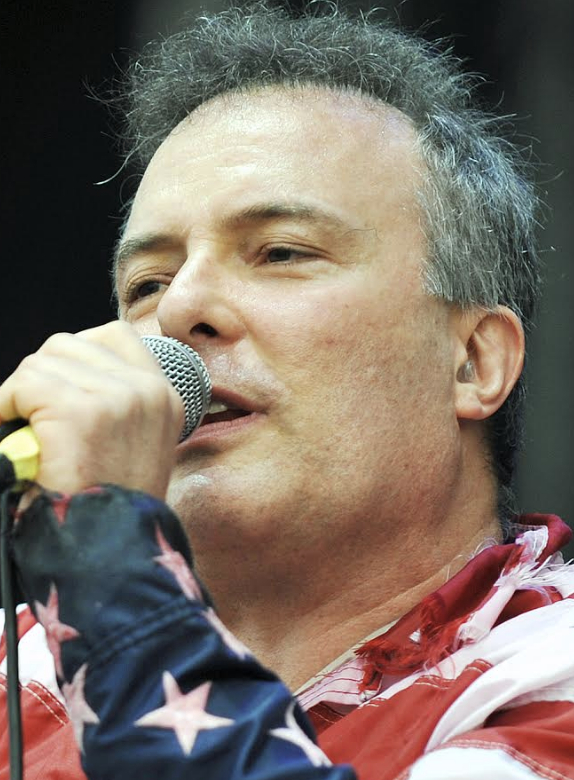
On this date in 1958, musician Jello Biafra (né Eric Reed Boucher) was born in Boulder, Colo., to Virginia (Parker) Boucher, a librarian, and Stanley Boucher, a psychiatric social worker and poet. Biafra is one-eighth Jewish but was unaware of that until the mid-2000s. He grew up in a secular household.
After high school he worked as a roadie for a punk rock band, enrolled at the University of Southern California-Santa Cruz and co-founded a San Francisco group in 1978 that became the Dead Kennedys, known for its politically themed songs, some laced with profanity. He adopted his stage name, mixing the gelatin dessert Jell-O with the short-lived west African nation Biafra.
He and Dead Kennedys guitarist East Bay Ray started the independent record label Alternative Tentacles in 1979. It lost the rights to Dead Kennedys recordings after a 2000 lawsuit. Biafra wrote the lyrics for the band’s 1981 EP “In God We Trust, Inc.,” which scorned organized religion (“Religious Vomit”) and neo-Nazis, among other targets. The band broke up in the mid-’80s and he began recording spoken word albums, joined the group Lard and formed Jello Biafra and the Guantanamo School of Medicine, performing for the first time on his 50th birthday.
The band canceled a 2018 show in Tel Aviv due to political unrest over the Palestinian situation. Biafra ended up going by himself, and in an article titled “Thoughts On Visit to Israel” (alternativetentacles.com, 5-24-18) wrote: “I have heard many times on both sides of the pond that ‘The problem is not the Israeli Jews. It’s the right-wing American Jews.’ ” He continued: “The bottom line, as one person at the table put it — can democracy survive religion? ‘A little bit of God is a dangerous thing.’ ”
Biafra married singer Theresa Soder, stage name Ninotchka, on Halloween 1981 in a cemetery. The ceremony was officiated by Flipper vocalist/bassist Bruce Loose, who became a Universal Life Church minister to marry them. They divorced in 1986.
PHOTO: Biafra performing in 2010 in Hradec Kralove, Czech Republic; photo by yakub88 / Shutterstock.com
“I’m not religious, music is my higher power, and I never know what’s coming next.”
— Interview, Kerrang! magazine (Jan. 14, 2021)
Jon Steingard
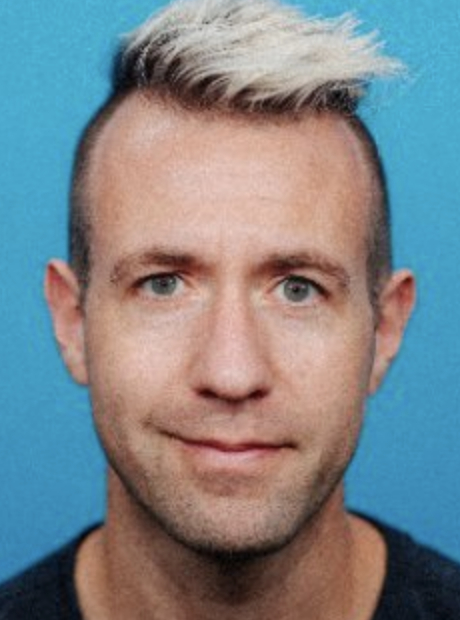
On this date in 1983, musician and visual artist Jonathan Steingard, the eldest of three children, was born in Canada to religious parents. His father was pastor of what Steingard calls a charismatic, Holy Spirit-focused church. He started playing guitar at age 9.
In 2004 he joined Hawk Nelson, a Christian pop-punk band that had formed in 2000 in Peterborough, Ontario. In 2012 he took over as lead vocalist and frontman when Jason Dunn left the band. In 2013 Beliefnet called the band “officially one of Christian rock’s elder statesmen.” The band has recorded eight studio albums (most recently “Miracles” in 2018) and is a staple at Christian music festivals.
It was in the parking lot at one of those festivals — Spirit West Coast in Del Mar, Calif. — that he proposed to Jessica Hubbard. They married in 2007 and have a son, Grey (b. 2017), and a daughter, Winter Joy (b. 2018). Both pregnancies were complicated by placental abruptions in which the placenta separates from the inner wall of the uterus before birth.
Asked by Risen Magazine in 2014 to describe his spiritual journey, Steingard said as he got older, he felt something was missing and he ended up at a Baptist church “really diving into Scripture.” The journey took an unforeseen and surprising turn in April 2020 when he announced on Instagram that he no longer believed in God: “It didn’t happen overnight or all of a sudden. It’s been more like pulling on the threads of a sweater, and one day discovering that there was no more sweater left.”
In a Christian Post story (May 23, 2020), he said he sees the bible as “human, flawed and imperfect,” adding, “I am stunned by the number of people in visible positions within Christian circles that feel the same way as I do. Like me, they fear losing everything if they’re open about it.” His doubt was increasingly fueled by questions such as these common ones: “If God is all loving, and all powerful, why is there evil in the world? Can he not do anything about it? Does he choose not to?”
Steingard had worked on various musical and video side projects while part of the band. He and Jessica, who live in San Diego, started Breaktide Artist Services, now Steingard Creative. “I specialize in music videos, promo videos, text animation and effects. Really anything that needs to grab people’s attention,” he said.
He was a guest on Freethought Radio on June 18, 2020.
“After growing up in a Christian home, being a pastor’s kid, playing and singing in a Christian band, and having the word ‘Christian’ in front of most of the things in my life, I am now finding that I no longer believe in God.”
— Steingard Instagram post (April 21, 2020)
Neil Peart
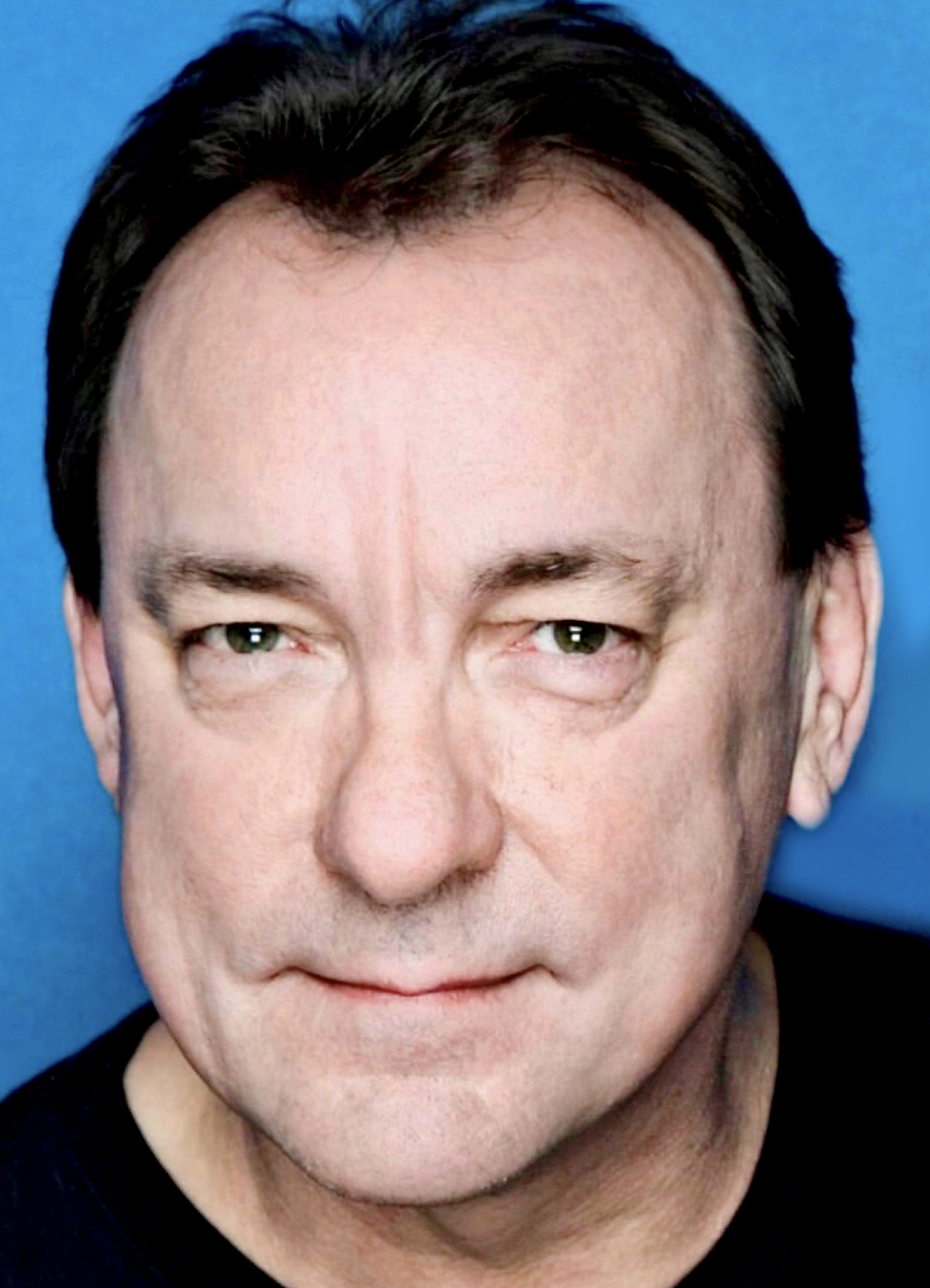
On this date in 1952, Canadian musician Neil Ellwood Peart (pronounced Peert) was born in Hamilton, Ontario. He had a happy childhood and started playing drums when he was 13 and played in local bands before moving to England to further his musical career.
As a child, he said he was “merely ambivalent” about religion after his parents enrolled him in Sunday school. He felt validated about his doubt after reading The Passover Plot, in which someone else, i.e., skeptical author Hugh Schonfield, had “dared to disbelieve.” (The Masked Rider: Cycling in West Africa, 1996.) Later in that memoir, Peart wrote, “I’m a linear thinking agnostic, but not an atheist, folks.”
After returning to Canada from London, Peart signed on as the drummer for the six-year-old, Toronto-based band Rush in July 1974, two weeks before the group’s first U.S. tour. Before long he was the band’s primary lyricist and went on to record 18 Rush albums and perform as many as 300 gigs a year before his 2018 retirement after being diagnosed with glioblastoma, a brain tumor.
In annual polls of readers conducted by Modern Drummer magazine, Peart was voted best rock drummer nine times. He also incorporated jazz and swing elements into his style, which furthered his renown as one of the world’s premier percussionists. He was inducted into the Rock and Roll Hall of Fame in 2013.
Peart wrote seven nonfiction books focused on his wide-ranging travels and personal stories. His lyrics for Rush included secular, humanitarian and libertarian themes. “Roll the Bones” (1991) says “Faith is cold as ice/Why are little ones born only to suffer/For the want of immunity, or a bowl of rice?”
In “Freewill” (1980) he wrote: “You can choose from phantom fears/And kindness that can kill/I will choose a path that’s clear/I will choose free will.” In “Faithless” (2007) he wrote: “I don’t have faith in faith/I don’t believe in belief/You can call me faithless/I still cling to hope/And I believe in love/And that’s faith enough for me.”
Peart and his common-law wife Jacqueline Taylor had a daughter named Selena who died in a car accident in 1997 at age 19. Taylor died of cancer 10 months later. He married photographer Carrie Nuttall in 2000. Their daughter Olivia Louise was born in 2009. Peart died at age 67 of glioblastoma. He had become a U.S. citizen and was living with his wife in Santa Monica, Calif. (D. 2020)
“I looked for the good side of faith. To me it ought to be your armor, something to protect you and something to console you in dark times. But it’s more often being turned into a sword, and that’s one big theme I’m messing with.”
— Peart, on writing songs for Rush's album "Snakes & Arrows" (Billboard, Sept. 11, 2006)
Donald Glover
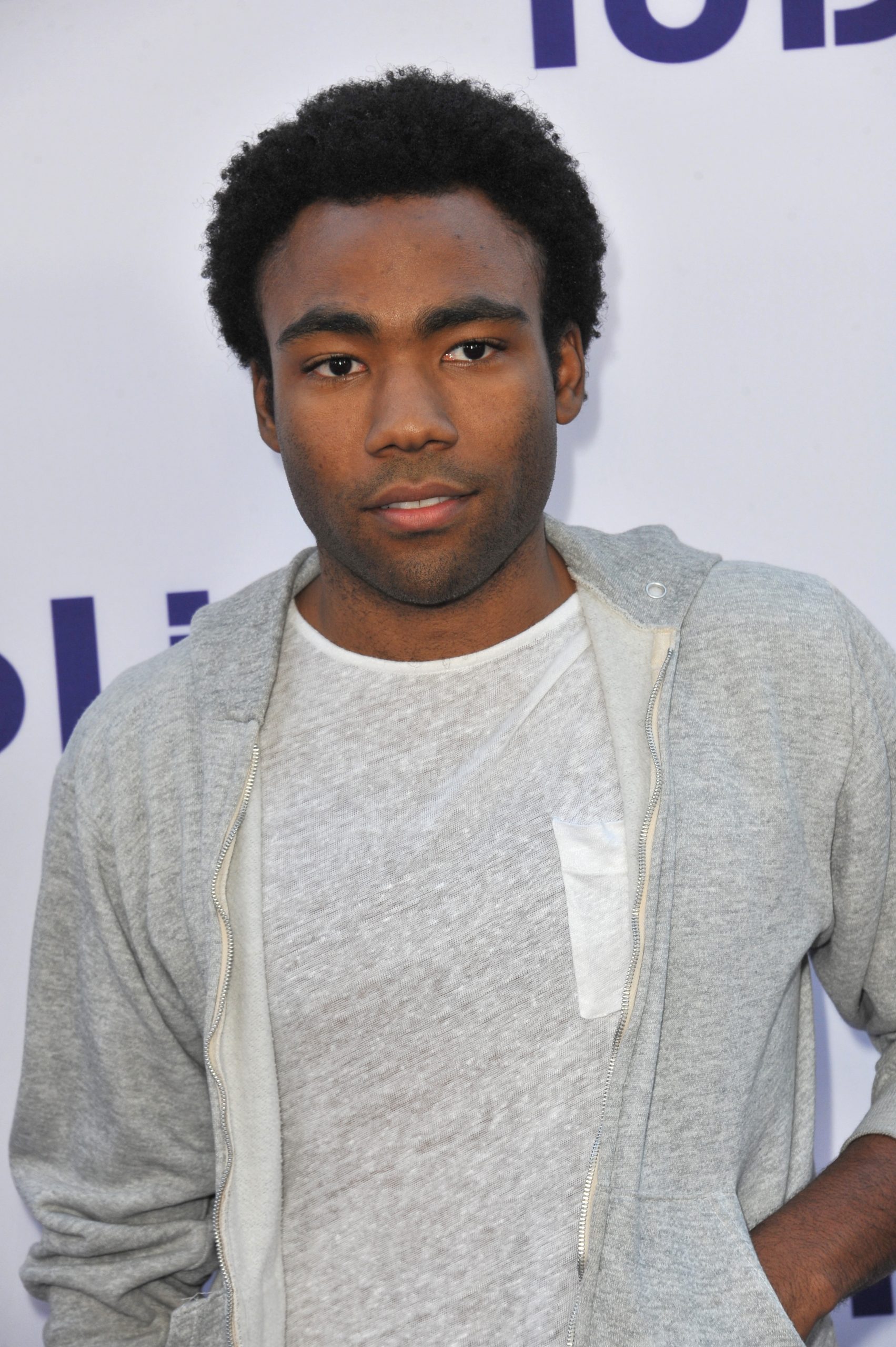
On this date in 1983, writer, actor, rapper and comedian Donald McKinley Glover was born at Edwards Air Force Base in California. His mother, Beverly, was a babysitter. His father was a postal worker. He had two siblings and several foster siblings, who grew up together in Stone Mountain, Ga. Glover graduated from New York University with a degree in dramatic writing in 2006. Immediately after graduating, he began writing for the NBC comedy “30 Rock,” for which he received a Writer’s Guild nomination in 2009. However, Glover is best known for playing Troy, the “jock” in a community college study group on the comedy series “Community.”
In addition to writing and acting, Glover performs stand-up comedy and recorded a special for Comedy Central in 2010. He also raps and has released several albums and EPs under the stage name Childish Gambino. His 2014 album “Because the Internet” was nominated for a Grammy for Best Rap Album. He was also nominated for best rap performance for the single “3005.”
Although he was raised a Jehovah’s Witness, Glover has distanced himself from his faith. In the song “Won’t Stop,” Glover refers to himself as an “airport atheist.”
“I think everybody kind of hits that point where they say, ‘Okay, am I doing this out of tradition? Do I actually believe this?’ ”
— Interview, Zap2it (Feb. 3, 2011)
Joni Mitchell
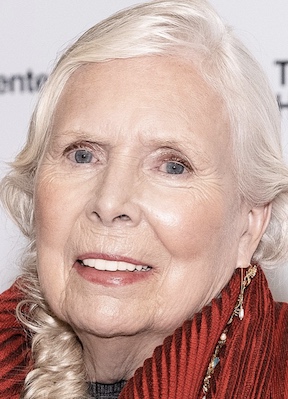
On this date in 1943, singer-songwriter Roberta Joan “Joni” Mitchell (née Anderson) was born in Fort Macleod, Alberta, Canada, to Bill and Myrtle Anderson, a grocer and schoolteacher. She contracted polio when she was 10, later reflecting, “A great sorrow hath humanized me.” She recovered but was left with complications. After a year at the Alberta College of Art in Calgary, she moved to Toronto to become a folk singer.
Mitchell got pregnant in 1964 and gave her daughter up for adoption. Her boyfriend had left her when she was three months pregnant and broke. (She finally reunited with her daughter, renamed Kilauren Gibb from Kelly Dale Anderson, in 1997.) She left Canada for the first time in 1965, going with American folk singer Chuck Mitchell to the U.S., where they started playing music together. They married in June 1965 when she was 21 and divorced in 1967.
Mitchell moved to New York, then to Los Angeles, soon achieving success and fame. As of this writing in 2019, she has released 19 studio albums and won nine Grammy awards. Her song “Both Sides Now” (“It’s life’s illusions I recall / I really don’t know life at all”) was recorded by Judy Collins in 1967 and became a top-10 hit.
Her album “Blue” (1971) soon became a top-seller. Her songs have been covered by numerous artists. She was ranked 42nd on Rolling Stone’s “100 greatest singers” list in 2008 and in 2015 was ranked ninth on its list of the 100 Greatest Songwriters of All Time.
In her song “The Priest,” Mitchell reflects on her ambivalence toward religion. “The Magdalene Laundries” laments “Fallen women sentenced into dreamless drudgery.” “Holy War” condemns war waged in the name of religion. The title song in “Shine,” her last album (2007) attacks the Catholic Church: “Shine on the Catholic Church / And the prisons that it owns / Shine on all the churches / They all love less and less”).
Mitchell has been confined to a wheelchair since suffering a brain aneurysm in 2015, which limited her public appearances. She performed for the first time at the 66th Annual Grammy Awards in 2024 and later that year with Brandi Carlile, Marcus Mumford, Annie Lennox and numerous supporting musicians.
PHOTO: Mitchell at the 2021 Kennedy Center Honors Medallion Ceremony at the Library of Congress; public domain photo by Shawn Miller/Library of Congress.
“I’m interested in the prophets of all religions, but the religions themselves don’t make any sense to me.”
— Mitchell interview, "Fresh Air with Terry Gross" (Oct. 20, 2004)
Andy Partridge
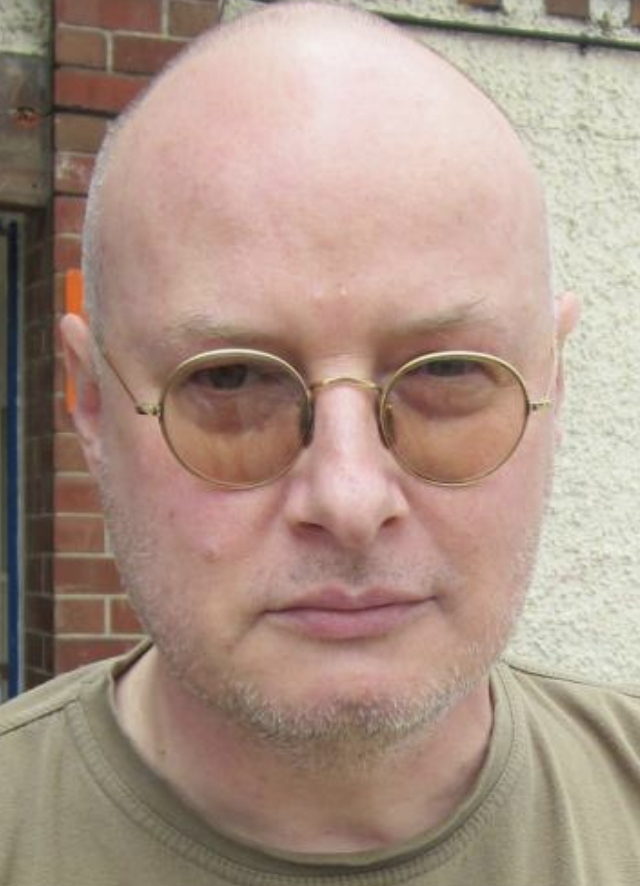
On this date in 1953, English musician Andrew John Partridge was born in Mtarfa, Malta, the only child of a Royal Navy signalman and a retail assistant in a pharmacy. Growing up in Swindon, England, he taught himself to play the guitar. The first records he ever bought were “Sgt. Pepper’s Lonely Hearts Club Band” (1967) and “The Monkees” (1966).
He dropped out of school to play in several rock bands (and to meet girls). In 1972 he and Colin Moulding started XTC, a formative punk group for which Partridge wrote most of the songs and sang most of the lead vocals. His music drew heavily from ’60s British Invasion songwriters, and his style gradually shifted to more traditional pop. He wrote XTC’s only UK top 10 hit, “Senses Working Overtime,” in 1982.
That year the band stopped touring but kept recording. Partridge also formed the Dukes of Stratosphear, whose albums outsold XTC’s. He started producing albums for other artists. In the 1990s he came to be regarded as “godfather” to the Britpop movement that expressed artists’ “Britishness.” XTC went on hiatus in 2006, and Partridge announced in 2008 his “musical partnership with Colin Moulding has come to an end.” He continued to work with other groups and on solo projects, including a 2021 four-song EP he called the first in “My Failed Songwriting Career” series.
Partridge was married to Marianne Wyborn from 1979 to 1994 and they had two children, Holly and Harry. After divorcing, he had a long-term relationship with American singer Erica Wexler. They started dating shortly after she split from artist Roy Lichtenstein.
In 2016 he called himself “very left” politically and said he had voted for Margaret Thatcher “purely because she was a woman. I was that naive.” He identifies with atheism and paganism, he has said. On the record sleeve of “Apple Venus Volume 1” (1999), XTC’s 13th studio album, is the Wiccan directive “Do what you will but harm none.”
“So Andy Partridge, nonbeliever, believes in heaven,” an interviewer once asked him? “Yes. Here, now. This is heaven and hell,” he replied. “I’m sure that’s what heaven is, really. Heaven is not hurting anyone.” (“The Dukes of Swindon,” Chalkhills.org, May 1989)
“I’m interested in the pre-Christian appreciation of the land and the spirit of things, spirits in animate things and inanimate things. I think it’s more of a natural wanting to believe in something natural and something tangible rather than Christianity, which I think is totally fake. Maybe well-meaning, but it’s held together by a terrible web of fibs and stealing other people’s good stories.”
— Interview, Chalkhills: The XTC Resource (March 5, 1999)
